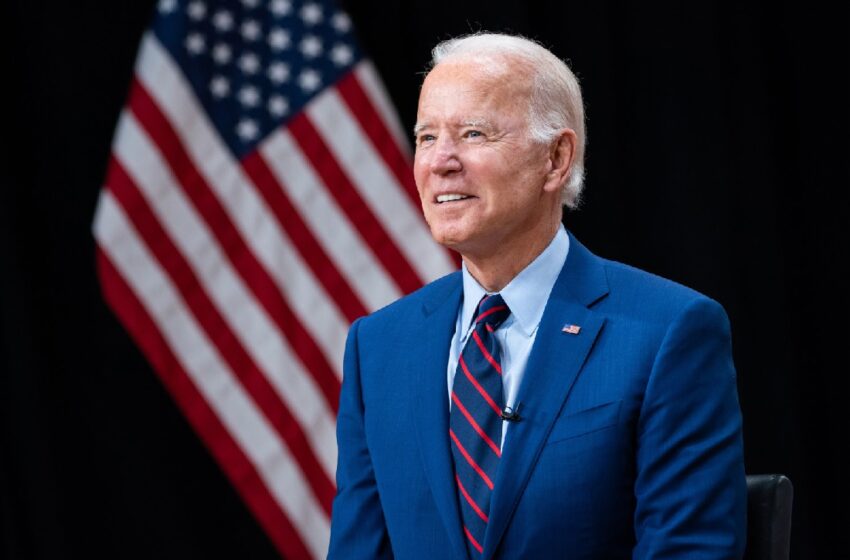CHIPS Act may benefit Biden, but U.S. should prioritize tech skills over general skilled labor

As part of the CHIPS Act 2022, President Joe Biden has tried to put forward initiatives towards reshoring to the United States the activities relating to the fabrication of semiconductors. This has been rationalized under the logic that the potential demand for the same would be on the rise and the share of the United States in the production of the same has been on the decline, from 37 percent in 1990 to 12 percent in the present.
Furthermore, with most of the semiconductors coming from Asia, during the Covid-19 period, the United States has been exposed to the risks associated with the rupturing of the global supply chain. Given that chip shortage was an important impediment, particularly so in the post-Covid period where the demand for the same has risen steeply, the US feels that most of the same being offshored might work inimical to its strategic interests. Taiwan, and, TSMC being there has always been an American concern.
The leading country that has been propagating the virtue of markets and has been highly critical of government support has now been so generous in its support through fiscal incentives, subsidies and investment tax credits towards reshoring semiconductor fabs to the United States. Wasn’t it the same country that took India to the WTO on the latter insisting on domestic content requirements in the solar cells dispute? Didn’t the state in China play the role in promoting state-owned enterprises a big sore in its relationship with China? Homeland economics, like one of those recent issues of The Economist, has observed, is back in action across countries. The days of neomercantilism are here again.
Needless to say, President Biden’s efforts at the outset have been able to attract investments in the semiconductors fab sector to different parts of the United States. The Taiwanese multinational TSMC has kickstarted one of the largest semiconductor fab investments ever in Phoenix Arizona. Work is underway and Ohio is all set to get its largest investment of $20 billion from Intel. Samsung with its investment of $26 billion in Texas and Global Foundries with $1 billion in New York have all been cheering the Biden- Harris dispensation with their large moves.
From Ohio to Oklahoma, from New York to Texas, the tax credits and subsidies-based CHIPS Act have been able to do what it has intended to. And, in catering to the low middle classes in the US who felt that they were left out in the lurch, this has been a large political accommodation too.
That said, does this policy make sense?
Known for its advantage in highly skilled labor, it is only logical that US firms like Intel and AMD had found being well off doing the fabless part of the semiconductor production, that is, design of the chip within the United States and offshoring the rest to low-cost destinations abroad. Is the President’s move going to be sustainable? If strategic threats associated with Taiwan are what guide all of this, then why not relocate to some other destination, why re-shore?
It is here that the operations of TSMC as reported by various news agencies presume importance. It is reported that the cost of fabricating in Arizona is at least 50 percent more than in Taiwan. The shortage of necessary skills has been alarming, engineers had to be sent to Taiwan to pick up skills. Might be till the next elections, the government would stay with these policies, and, afterward, it would be fabless designs in the United States again and fabs from Asia.
Worse, the government would also not want to do the same with a liberal H-1B regime. This would mean that the workers from outside would have most of these jobs. With liberal H-1B, you are politically not going to benefit. Without that, you are sure to be doomed, labor costs would rise. Of the fresh Ph.D.s in STEM in the United States, 60 percent of them are first-generation Indians or Chinese. They would catch their flight back, of course with reluctance, and do the fabs in their own countries.
Ronnie Chatterji to lead $50 billion CHIPS for America program (September 20, 2022)
In trade literature, as wage costs go up, there is a relocation of such activities which occurs to an even lower-cost destination, is the flying geese effect. In this case, rather than flying to any of those South Asian or African destinations, the goose is flying to a high-cost destination, of course, lured by the plethora of fiscal incentives by the leader country.
Politically, the CHIPS Act would do well for the Democrats, sure. But between choosing tech skilled as against skilled work, shouldn’t the US be focusing on the former? Ambitious though, the Chinese Communist Party has set a theme that China should go for intelligent manufacturing. It stands a good chance of happening if these STEM Ph.D.s get back to Beijing. The story has just begun.
(Krishnakumar S. teaches economics at Sri Venkateswara College, University of Delhi. This column draws from a lecture he delivered on “Trade Wars, Protectionism and the Developmentalist State” under the Pravah Series organized by the Department of Political Science, Sri Venkateswara College.)
